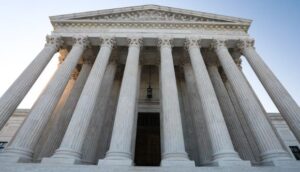By Erica M. Clifford, Esq.
The recently established Third Circuit precedent barring out-of-state plaintiffs from joining a collective action under the Fair Labor Standards Act remains intact after the United States Supreme Court denied the plaintiff’s petition for certiorari in Fischer v. Federal Express.
Last year, in Fischer, the Third Circuit limited the plaintiff’s FLSA collective solely to those employees who worked for FedEx facilities in Pennsylvania, the state where the suit was filed. All other nationwide employees who attempted to “opt-in” to the suit by virtue of their employment with FedEx in other states were not permitted to join on personal jurisdiction grounds. The Court reasoned that the claims filed by the out-of-state plaintiffs did not arise out of the defendant’s minimum contacts with the forum state and therefore the court did not have jurisdiction over those claims. Plaintiffs petitioned the Supreme Court seeking a reversal of the Appeals Court opinion.
FLSA Claims
Employers are likely most familiar with the FLSA as the federal statute that establishes minimum wage and overtime pay requirements for employees. Some of the more common FLSA collective actions involve claims that employees were improperly classified as exempt, that employees performed “off-the-clock” work, or claims involving the miscalculation of overtime pay for non-exempt employees. Hoping to take advantage of economies of scale, the name plaintiff in an FLSA action will file a lawsuit on his or her behalf, and “on behalf of those similarly situated.” While the plaintiff who filed the initial lawsuit lives and works in the forum state, other employees across the nation will submit “consent to join” forms, in an attempt to become conditionally certified as part of a nationwide collective. Following the 2017 decision of the Supreme Court in Bristol-Meyers Squibb v. Superior Court of California, three of the four Circuit Court of Appeals who have been presented with this issue, have held that out-of-state plaintiffs cannot join FLSA collective actions against out-of-state companies when their claims are not connected to the company’s activities in the state where the suit is filed.
Fischer v. Federal Express
Christa Fischer worked as a security specialist for Federal Express at a facility in Pennsylvania. In her suit filed in the Eastern District of Pennsylvania, Fischer alleged that Fed Ex misclassified her as an exempt employee, and failed to pay her overtime in violation of the FLSA. Several out-of-state workers attempted to join the FLSA action, by submitting “consent to join” forms. Relying on the Bristol-Meyers Squibb decision, the Third Circuit held that these would-be plaintiffs could not meet personal jurisdiction requirements because their claims did not arise out of or relate to the defendants’ minimum contacts with the forum state (i.e. they did not work at a FedEx site in Pennsylvania.) Personal jurisdiction was required because the Court did not have general jurisdiction over FedEx because the company was neither incorporated in Pennsylvania, nor did it have its principal place of business in Pennsylvania.
The Fischer Court therefore narrowed the scope of the collective to Pennsylvania workers. Any would-be plaintiff who worked for FedEx outside of Pennsylvania was barred from joining the collective – a significant blow to the plaintiffs who hoped that a nationwide collective would be certified. Fischer sought to appeal the decision to the United States Supreme Court but in March of 2023, the Supreme Court rejected Fischer’s petition for certiorari.
Impact for Employers
The Supreme Court’s decision to pass on Fischer’s petition for certiorari leaves the Third Circuit’s employer-friendly decision intact – a major win for employers. The Fischer opinion sets a precedent that effectively bars plaintiffs within the Third Circuit – namely, New Jersey, Pennsylvania, Delaware, and the U.S. Virgin Islands – from asserting FLSA actions that would result in a nationwide collective of employees.
However, it is unclear how long this decision will remain the standard. While the Sixth and Eighth Circuits have adopted the same treatment of the personal jurisdiction issue, the First Circuit is not in agreement. Because of the Circuit Court split, this question could be raised again on interlocutory appeal from one of the circuits yet to address this precise issue. Thus, while employers should continue to make the preliminary personal jurisdiction argument at the inception of an FLSA action to limit the collective to the forum state, they should also be on the lookout for the Supreme Court to ultimately address this issue.
Please contact an NFC team member if you have any questions or seek further assistance.

